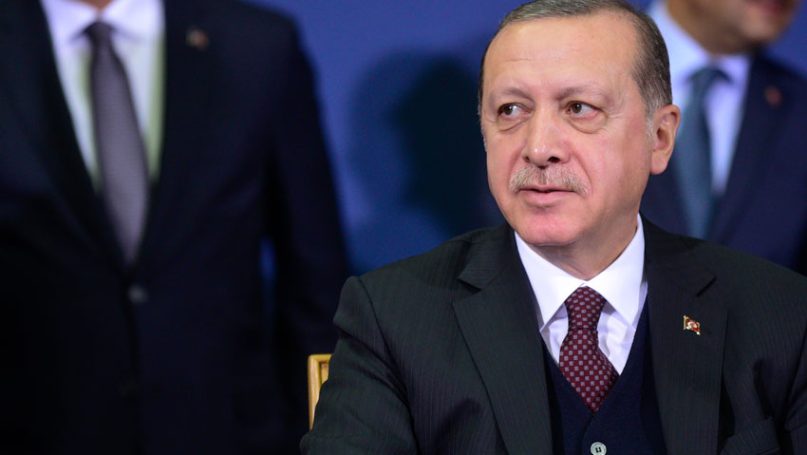
In May 2023, Recep Tayyip Erdogan was re-elected as President of Turkey for a third term with just over 52 percent of the vote. In parliamentary elections held at the same time the People’s Alliance, consisting of Erdogan’s Justice and Development Party (AKP) and several nationalist and Islamist parties, secured a majority in the Turkish National Assembly. The results gave Erdogan a comfortable basis for governing Turkey the next five years.
How will the election result affect Turkish foreign policy?
With Erdogan still at the helm in Ankara the basic features of Turkish foreign policy are likely to remain. Furthermore, the appointment of ex-spy chief Hakan Fidan as Minister of Foreign Affairs and ex-presidential adviser Ibrahim Kalin as head of the National Intelligence Organisation (MIT) indicate that Erdogan wants to keep a tight grip on foreign and security policy in the coming period. Both appointees belong to Erdogan’s inner circle of advisers, and by all accounts enjoy the president’s trust.
Security and economy are likely to be the main drivers in Turkish foreign policy in the coming term, with a continuing emphasis on building and re-building the country’s foreign relations. In his first public speech on August 7, foreign minister Fidan set out a security and economy-oriented agenda with four strategic goals: establishing peace and security in the region, expanding and institutionalising foreign and economic relations, strengthening prosperity at home, and advancing Turkey’s global goals. Fidan described his overall foreign policy vision as making Turkey one of the actors that will build a new world order.
Based on Turkey’s recent record and Fidan’s speech it seems likely that the basic features of Ankara’s foreign policy will remain fixed. Ankara will continue to pursue a quest for greater strategic autonomy and seek to reinforce Turkey’s position as a middle-range power, both in its regional neighbourhood and globally.
In the Middle East, Turkey will seek to maintain its power projection with forces deployed in Syria, Iraq and Libya, and on the military base in Qatar. Increased capabilities, mainly by advanced UAV’s and the new light aircraft carrier Anadolu, will also serve to extend Turkey’s military reach in the region. Simultaneously, Turkey will continue to defuse tensions and seek to normalise relations with other regional states. Around 2020 it became clear to Ankara that its then one-sided assertive and militarised foreign policy failed to pay the expected dividends. Turkey was faced with increasing diplomatic isolation and an emerging anti-Turkey alliance in the Mediterranean and the Middle East comprising such diverse countries as France, Greece, Israel, Egypt, and the United Arab Emirates. Adding to the deteriorating security situation, the Turkish economy was heading into recession, creating an urgent need for greater foreign investments. Taken together these developments prompted a diplomatic U-turn by Ankara, where Turkey reached out to its erstwhile adversaries in the Middle East, seeking to de-militarise and normalise relations with the United Arab Emirates, Saudi-Arabia, Israel and Egypt. Even a diplomatic normalisation with the regime in Damascus is now on Ankara’s agenda. The painstaking normalisation efforts have so far led to a restoration of ties with most of the aforementioned states, and facilitated large-scale economic investments from the Gulf countries in Turkey.
Globally, Ankara will carry on a balancing act between multiple power centres and take advantage of regional and geopolitical shifts. For example, Ankara is likely to take advantage of a weaker Russia to strengthen its own position in the Black Sea Region, in Syria, and in Africa where the two countries compete for influence. Nonetheless, Turkey will seek to avoid any deliberate confrontation with major powers such as Russia and China. Currently, Ankara has a well-functioning and profitable foreign policy cooperation with both Moscow and Beijing.
Despite its quest for greater strategic autonomy, Turkey will maintain its anchoring in the transatlantic community through NATO. Membership in the transatlantic alliance gives Ankara significant international prestige and political influence, also on issues that lie beyond NATO’s area of responsibility. Turkey’s assertive diplomatic style and preference for a transactional foreign policy has from time to time brought Ankara to the diplomatic brink with the European Union and the United States, and there is little reason to believe that Turkey will be less combative in its dealings with Western allies in the coming term. At the same time Ankara will be careful to uphold Turkey’s legacy as a reliable contributor to NATO, and not risk its relations with important trading partners in the West. During the Ukraine war Ankara has also increased its value to Western allies by positioning itself as an important middleman and broker between Russia, Ukraine, and the West. The ambition of Turkish EU membership will also be kept on the foreign policy agenda in both Ankara and Brussels for the foreseeable future, if only because there are no good alternatives for ordering Turkey’s relationship with Europe.
Further Reading on E-International Relations
- Deciphering Erdoğan’s Foreign Policy after Turkey’s 2023 Elections
- Opinion – Spain’s Request For NATO Coronavirus Aid: Will Turkey Answer?
- Opinion – NATO’s Expansion in Northern Europe Rests on Türkiye
- Religion and Secularism in Turkey, and The Turkish Elections
- Erdoğan’s Foreign Policy: Strategy Without Doctrine
- Opinion – Turkey’s May Elections Are about Regime Change